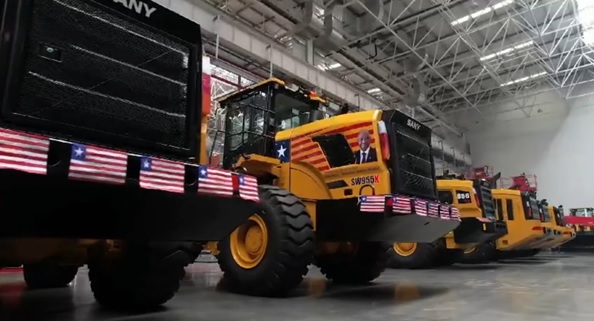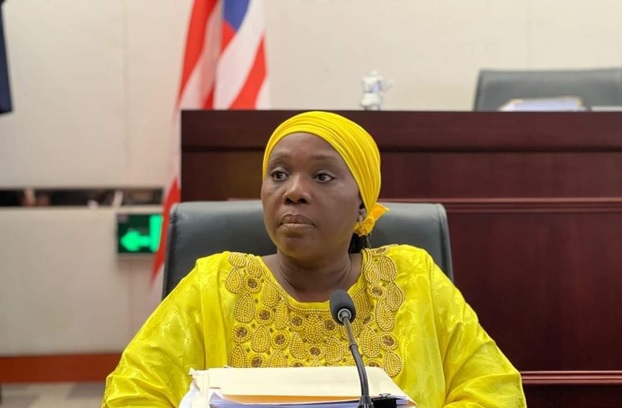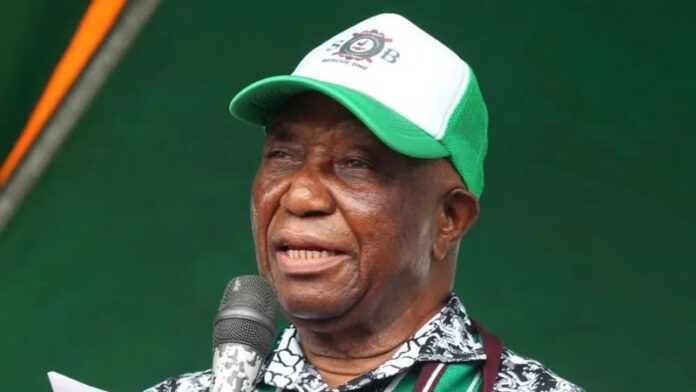MONROVIA – Today, Vah Isaac Tukpah expressed his optimism regarding the Unity Party-led administration’s procurement of 285 earth-moving machines, highlighting the transformative potential if managed correctly. Tukpah emphasized that if these machines are safeguarded from theft and maintained properly, they could revolutionize transportation, agriculture, job creation, and overall development in Liberia.
“This is BIG!! If done right, machines are not stolen, and people are trained to maintain, it’s a game changer for transportation, agriculture, job creation, etc. Imagine, 10,000 hectares of planted rice in each county could be easily achievable in 6 months. Interesting!!!” Tukpah stated, underscoring the vast potential for agricultural expansion and food security.
He pointed out the need for a strategic plan to maximize the benefits of these machines. Tukpah suggested that the government should develop a comprehensive project plan that includes targets, milestones, affected sectors, expected outcomes, as well as maintenance, monitoring, and evaluation protocols.
“All counties are not created equal. There should be a strategic plan, or at least a project plan for these inputs, the targets, the milestones, the sectors affected, the expected outcomes, maintenance, monitoring, and evaluation,” he wrote. Tukpah’s call for strategic planning reflects a desire to ensure that the distribution and use of the machines are both equitable and efficient.
Tukpah noted that there appear to be nine different types of machines, with each county potentially receiving two of each type, totaling 18 machines per county. “I guess 19 machines each is not bad. Congratulations to the government,” he remarked, acknowledging the substantial boost to local infrastructure and agricultural capabilities.
However, Tukpah also proposed an alternative strategy: decentralizing the machines into five zonal motorpools. This approach would align with the Ministry of Agriculture’s anticipated five ecological zones agriculture development program, potentially enhancing the effectiveness of implementation, management, and maintenance.
“There could still be an alternative like decentralizing to five zonal motorpools (aligned with MoA’s anticipated 5 ecological zones agriculture development program) for more effective implementation, management, and maintenance,” he suggested. This zonal approach could ensure that the machines are used where they are most needed and maintained efficiently.
Despite his enthusiasm, Tukpah acknowledged the public’s demand for transparency regarding the source of the machines and any attached conditions. “People do want to know the source and the strings attached. However, this is a game changer. We await the arrival, analysis, and application(s) around the machines,” he stated, echoing the call for accountability that has been a focal point of the broader debate surrounding the procurement.
In a final note, Tukpah contrasted the tangible benefits of the earth-moving machines with the potential misuse of cash. “I prefer these tangibles to $100M in cash that would be STOLEN and never used for the intended purpose,” he asserted, highlighting the practical advantages of investing in physical assets over cash, which could be more easily misappropriated.
The successful deployment and management of these machines could indeed mark a significant step forward for Liberia, providing the infrastructure and agricultural support necessary for sustainable development. However, as Tukpah and others have emphasized, the key to realizing this potential lies in careful planning, transparency, and effective management.







